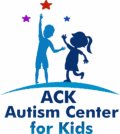
If your child has been diagnosed with Autism Spectrum Disorder (ASD), chances are they may be facing some social impairments. This means that they will have difficulty interacting with others and maintaining meaningful relationships with peers. When these impairments can be identified, appropriate strategies can be put in place to help kids develop good social skills.
Thank you for reading this post, don't forget to subscribe!Social skills groups are one of the many interventions you can implement to help your child develop these important skills. Within these small groups, children will be guided by a professional adult to overcome these impairments that can hold them back from maintaining friendships, thriving in group settings and learning new things. But how do you know if a social skills group will be the right fit for your child’s needs?
This article will provide you with a checklist that can help you determine whether or not Social Skills Trainings (SSTs) will benefit your child.
What Problems Can Occur When a Child Has Social Skill Difficulties?
Many different types of behaviors will be present in children with social impairments. Knowing what these social behaviors are can help you determine the right therapy for your child. Here are some problems your child may face:
- Making and maintaining eye contact, using fleeting eye contact or staring.
- Struggling to take turns in conversations.
- Not being able to pick up on body language and use appropriate body language.
- Using impolite forms of communication or having bad manners.
- Being unable to initiate and end conversations appropriately.
- Frequently interrupts others and oversteps boundaries.
- Not being able to maintain a topic of conversation, often changing the subject to speak about their own interests.
- Asking inappropriate questions or being insensitive.
- Showing little interest in the perspectives of others.
- Failing to understand jokes and figurative speech, sarcasm and idioms.
- Talking fast or with unusual stress, intonation, pitch or tone-of-voice.
- Not being able to read facial expressions or different ones of voice.
- Disclosing excessive personal information to unfamiliar people.
- Not being able to read verbal and non-verbal cues and the feelings of others.
- Reacting inappropriately to teasing, joking, failure or anger.
- Not being able to adjust their language to match the social interactions appropriately.
- Lacking empathy, appearing self-centred or failing to understand the consequences of their actions.
- Lacking imagine.
- Having a hard time with teamwork and cooperation.
- Have trouble with active listening, focusing and interpreting information received from others.
- Difficulty completing academic tasks such as misinterpreting instructions.
- Challenges in expressing emotions, wants and needs or thoughts and ideas.
- Difficulty with articulation, speech clarity, and fluency of sounds, syllables, words, and phrases.
- Repetition and over-explanation of simple concepts and thoughts, problem with problem-solving skills.
When your child displays one or two of these behaviours, it is usually not something to stress about since they can then be quickly addressed. If, however, your child faces multiple of these problems daily, it might be time to consider professional interventions like social skills groups.
How Can Social Skills Groups Benefit Your Child?
When it comes to ASD, one of the most essential things is early detection and intervention. The sooner your child is diagnosed, the sooner interventions like social skills programs can be implemented.
Children often face a lot of frustration caused by a lack of effective social skills as they find it hard to make friends, develop hobbies and interests and form part of a group. Social skills groups address these issues with strategies that utilize structure, play, social stories and scenarios, role-playing, instruction and resources.
With this type of intervention, children can foster self-awareness, awareness of others and understanding of social conventions to understand social situations better and find a sense of belonging.
Discover more from Autism Services and therapy for Kids by counseling
Subscribe to get the latest posts sent to your email.


You must be logged in to post a comment.